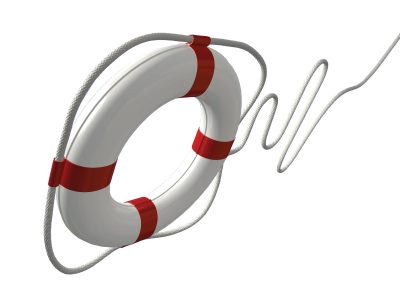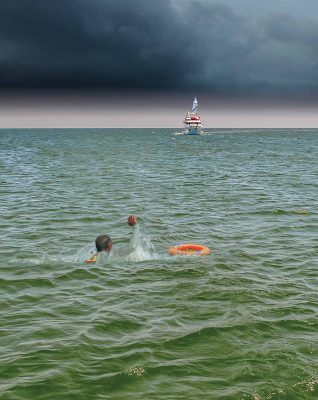×


We have detected your country as:
Please click here to go to the USA website or select another country from the dropdown list.
by: Ilse Strauss, News Bureau Chief
 They once called it the Switzerland of the Middle East, an island of calm, cultured prosperity in a sea of chaos and cruelty. But those days are long gone. Today, Lebanon is known for something else: a failed state in the throes of what the World Bank calls one of the worst economic collapses in 150 years.
They once called it the Switzerland of the Middle East, an island of calm, cultured prosperity in a sea of chaos and cruelty. But those days are long gone. Today, Lebanon is known for something else: a failed state in the throes of what the World Bank calls one of the worst economic collapses in 150 years.
It was bound to happen. Decades of kleptocracy, corruption and a financial system described as a nationally regulated Ponzi scheme will take any country to the edge of the abyss. Add to that a paralyzed government and an Iranian-backed terror organization reigning as the strongest security and political power, and you have the perfect storm for an economic meltdown.
Lebanese describe this crisis as the worst in the nation’s history, including the bloody 15-year civil war that claimed an estimated 120,000 lives. A brief overview of the horrors plaguing the Land of Cedars shows why.
The Lebanese pound has lost over 90% of its value. Banks are largely insolvent, unable to prop up the flailing currency. The economy has decreased by 40%. Inflation hovers around 200%. Prices have quadrupled, while the average monthly salary has shrunk from US $500 to US $25. Savings have been wiped out, tens of thousands have lost their jobs and three-quarters of the population live under the poverty line. A mass exodus of skilled workers has decimated the health care and education systems. A severe shortage of basic consumer goods has rendered food, electricity, fuel, clean water and medicine scarce commodities. Electricity is a luxury. Malnutrition is the new normal.
Capable leadership might have halted the freefall into ruin, but Lebanon’s government has been too deadlocked, absent, paralyzed or busy squabbling to deliver basic infrastructure or take the necessary action to deal with the crisis.
 Unless there’s a miracle, Lebanon will topple into the abyss, warns Col. (ret.) Dr. Jacques Neriah, special Middle East analyst at the Jerusalem Center for Public Affairs, former foreign-policy adviser to Prime Minister Yitzhak Rabin and the deputy head for assessment of Israeli Military Intelligence.
Unless there’s a miracle, Lebanon will topple into the abyss, warns Col. (ret.) Dr. Jacques Neriah, special Middle East analyst at the Jerusalem Center for Public Affairs, former foreign-policy adviser to Prime Minister Yitzhak Rabin and the deputy head for assessment of Israeli Military Intelligence.
But what caused the decline from regional pride to international dystopia? Who’s behind the dizzying descent? And what are the implications for Israel?
Lebanon’s ruin was years in the making, explains Neriah. However, terror organization Hezbollah and its puppet master Iran were the straw that broke the camel’s back.
The Lebanese banking system used to serve as a money laundering haven. Foreign nations—particularly Arab countries—jumped at the opportunity and invested heavily, earning spectacular interest. Yet the entire system was a Ponzi scheme sanctioned at the highest level, says Neriah.
At the same time, the Gulf nations acted as Beirut’s economic patrons, with 76% of foreign investment between 2003–2015 coming from the Gulf States. Lebanon’s survival hinged on the inflow of those funds when the cash coffers slammed shut—thanks to Hezbollah and Iran.
“When the Second Lebanon War ended, Hezbollah was the Arab champion,” Neriah explains. “But then Tehran asked Hezbollah to intervene in the Syrian civil war. So Hezbollah was no longer a resistance movement against Israel. It was fighting Arabs in Syria, Iraq and now Yemen,” effectively serving as the Iranian vanguard. Moreover, as animosity between the Gulf States and Iran increased, so did the Gulf States’ scorn for the terror organization doing Tehran’s bidding.
Disturbed by the growing influence of Hezbollah—and Tehran—in Beirut and the perception that Lebanon was morphing into an Iranian outpost, the Saudi-led Gulf States—the main investors in the Lebanese banking system—withdrew their funds. “They called Lebanon’s bluff, and the Ponzi scheme collapsed, leaving Lebanon without money, while still owing high interest to investors.”
Moreover, the once-significant financial investments from the Gulf States slowed to a trickle, leaving Lebanon without the cash injection critical to its survival.
While some of Lebanon’s leaders scrambled to mend the rift, Hezbollah seemed set on dealing the relationship a deathblow, Neriah says. Last year, a minister from the Hezbollah camp criticized the Saudis’ war efforts against the Houthis in Yemen. Riyadh promptly severed ties with Beirut, recalling its ambassador and ceasing all trade. Then, in January, Hezbollah Secretary-General Hassan Nasrallah called King Salman a terrorist. Riyadh labeled Hezbollah a threat to Arab security and called on Beirut to “give priority to the supreme interest of Lebanon…and end Hezbollah’s terrorist hegemony…”
But Hezbollah isn’t merely behind Lebanon’s misfortunes; it’s also the only party profiting, Neriah holds. While the Lebanese pound plummets, Hezbollah gets US $500 million from Iran annually. Virtually untouched by the economic collapse, the terror organization has established its own infrastructure, with schools, supermarkets, hospitals and pharmacies offering products and medication courtesy of Tehran and Damascus. As local businesses fold, Hezbollah is there for the takeover, consuming the industry, devouring the nation from within and building a mini state within Lebanon.
Jerusalem has a vested interest in a strong, stable Lebanon. If the country collapses and the government disintegrates, the entire territory on Israel’s northern border descends into chaos, with local militias ruling pockets of land, Neriah explains. Southern Lebanon will fall entirely to Hezbollah—and by implication, Tehran—opening yet another Iranian front on Israel’s doorstep. The terror organization has a cache of 150,000 precision, long-range missiles and 2,000 attack drones—all trained on Israel. Until now, Hezbollah has largely kept its finger off the trigger, but southern Lebanon falling to the terror group changes the rules. If Hezbollah decides to strike—on Iran’s say-so—that means a salvo of 1,500 missiles raining down on Israeli targets.
The bottom line? The ruin of Beirut will prop up the terror group and push Lebanon into Iran’s outstretched arms, turning the Land of Cedars into another Iranian protectorate and bringing the mullahs another step closer to regional hegemony.
Israel is in a precarious position. Although it cannot sit idly on the sidelines while Iran enacts its takeover, Jerusalem’s hands are tied. The two countries have no diplomatic relations. Jerusalem has reached out a helping hand to Beirut four times over the last year alone, only to be rebuffed. The Lebanese prime minister has stated he’ll accept help from anywhere except Israel. And still Israel tries…
In January, the US convinced Lebanon to accept Israeli gas as a solution to its energy crisis, provided that gas flows via Egypt, Jordan and Syria. Perhaps what seems like a drop in an ocean of crises can help Lebanon lift its head just enough to stave of complete collapse. Perhaps total disintegration is inevitable and the death knell has already tolled. Regardless, Israel will be ready, watching and waiting for whatever may come in Lebanon.
Photo Credit: Click on photo to see photo credit
All logos and trademarks in this site are property of their respective owner. All other materials are property of Bridges for Peace. Copyright © 2024.
Website Site Design by J-Town Internet Services Ltd. - Based in Jerusalem and Serving the World.